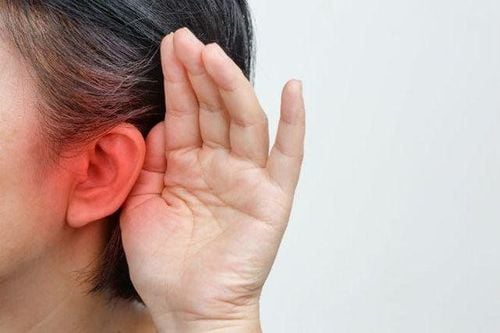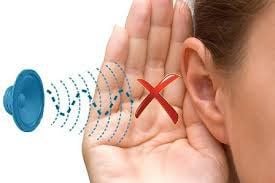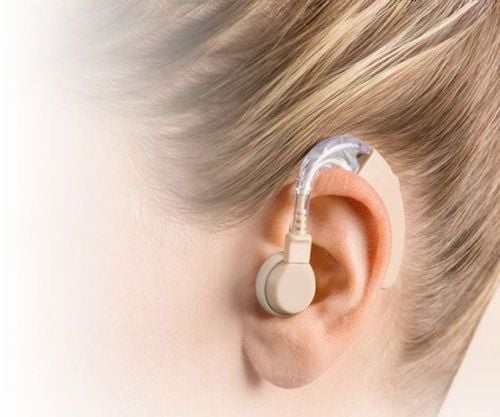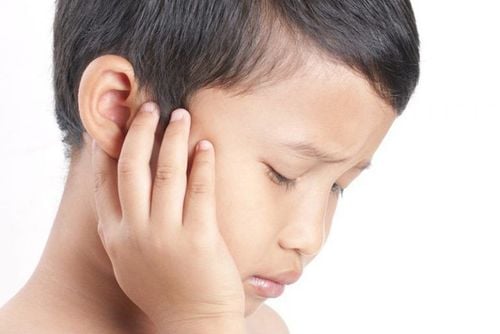This is an automatically translated article.
The article was professionally consulted by Specialist Doctor of Otolaryngology - Department of Medical Examination and Internal Medicine - Vinmec Hai Phong International Hospital.
High-frequency hearing loss causes problems with hearing high-pitched sounds. It can also lead to problems with listening comprehension when speaking quickly. Damage to the hair-like structures in your inner ear can cause this type of hearing loss. In this article, we will look at the symptoms and causes of high-frequency hearing loss. The article will also tell you how you can take care of your ears.
1. What is high frequency hearing loss?
High-frequency hearing loss causes problems with hearing high-pitched sounds. It can also lead to problems with listening comprehension when speaking quickly. Damage to the hair-like structures in your inner ear can cause this type of hearing loss.
Frequency is a measure of the number of oscillations of a sound wave per second. For example, a sound measured at 4,000 Hz will vibrate 4,000 times per second. Frequency is the pitch of the sound, which is different from pitch, which is the loudness of the sound.
For example, the middle note C on the keyboard has a frequency of about less than 262 Hz. If you lightly touch the key, you can produce a sound that is so low in intensity that it's hard to hear. If you press the key harder, you can make a much louder sound at the same pitch.
Anyone can have high frequency hearing loss but it is more common with age. Exposure to loud or high-frequency sounds is a common cause of ear damage in young people.
2. Symptoms of high pitch hearing loss
If you have high-pitched hearing loss, you may have trouble hearing sounds like:
Doorbell. Phone and “beep” sound. Female and child voices. Birds and animal sounds. You may also have trouble distinguishing between different sounds in the presence of background noise.

3. Is high frequency hearing loss permanent?
Hearing loss is extremely common in the United States. Approximately 22 million Americans are exposed to hazardous noise levels at work. Once the structures in your inner ear are damaged, it usually won't be possible to improve hearing loss. Hearing loss can be classified into sensorineural hearing loss and conductive hearing loss, or a combination of both.
Sensorineural hearing loss is the more common type. It occurs when your auditory nerve or the hair cells inside your cochlea are damaged. Sensorineural hearing loss is usually permanent but can be improved with hearing aids or cochlear implantation.
Conductive hearing loss is less common. This type of hearing loss involves a blockage or damage to your middle or outer ear structures. It can be caused by a build-up of earwax or a broken ear bone. In some cases, this type of hearing loss is reversible. If you have hearing loss, you should see a doctor for an accurate diagnosis.
4. Causes of High Frequency Hearing Loss
Your outer ear acts as an acoustic funnel that picks up sound toward your ear canal. Three bones in your middle ear called the tibia, fibula, and stapes carry vibrations from the ear canal to a spiraling organ in your inner ear called the cochlea.
Your cochlea contains hair cells with small hair-like projections called stereocilia. These structures convert sound vibrations into nerve impulses.
When these hairs are damaged, you can experience high frequency hearing loss. You have about 16,000 hair cells in your cochlea when you are born. Hearing damage may not be detected until 30 to 50% of the hair cells are damaged.
The following factors can lead to hair cell damage.
4.1. Aging Hearing loss due to age is common in the elderly. About 1 in 3 people between the ages of 65 and 74 have hearing loss. It affects half of adults over the age of 75.
4.2. Noise damage You can experience hearing damage from both high-frequency sounds and loud sounds. Frequent use of headphones at high volume can cause permanent hearing loss.
A 2018 study examined the relationship between portable music players and hearing loss in children. Researchers looked at more than 3,000 children between the ages of 9 and 11. They found that 14% of children had some degree of high-frequency hearing loss. Children who use portable music players only once or twice a week are more than twice as likely to develop hearing loss as children who do not use music players.
4.3. Otitis media Middle ear infections have the potential to cause fluid buildup and temporary hearing loss. Permanent damage to the eardrum or other structures of the middle ear can occur in severe infections.

4.4. Tumor Tumors called acoustic neuromas can press on your auditory nerve, causing hearing loss and ringing in the ears on one side.
4.5. Heredity Hearing loss can be partly genetic. If someone in your family has a hearing loss, you are more likely to develop it too.
4.6. Medications Some drugs that can cause hearing loss by damaging the inner ear or the auditory nerve are called ototoxic. Nonsteroidal anti-inflammatory drugs (NSAIDs), some antibiotics, and some cancer drugs are among the drugs that are potentially toxic to the ear.
4.7. Meniere's Disease Meniere's disease targets your inner ear and causes hearing loss, tinnitus, and dizziness. It is caused by fluid buildup in the inner ear; can be caused by a viral infection, an immune response, a blockage or a genetic predisposition, etc. Meniere's disease usually affects one ear.
5. High frequency hearing loss with tinnitus
Tinnitus is a persistent ringing or buzzing in your ears. It is thought that up to 60 million people in the United States have some type of tinnitus. Often, hearing loss is accompanied by symptoms of tinnitus. Tinnitus can be a symptom of hearing loss but not the cause.
6. Controlling high frequency hearing loss
High frequency sensorineural hearing loss is usually permanent and is usually caused by damage to the hair cells in your cochlea. Hearing aids that target high-frequency sounds may be the best choice if your hearing loss is severe enough to affect your life.
Technological improvements over the past 25 years have made it possible to create hearing aids that can be more suitable for different types of hearing loss. Modern hearing aids even include Bluetooth technology to sync with phones and tablets.
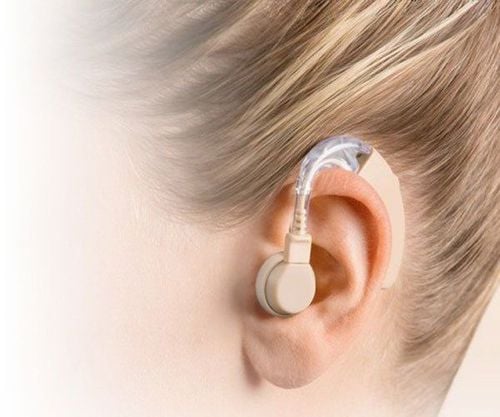
7. High frequency hearing loss prevention
You can prevent high-frequency hearing loss by avoiding high-pitched or high-frequency sounds. Even a single exposure to loud noises above 85 decibels can cause irreversible hearing loss. Here are some ways to protect your hearing:
Minimize your exposure to loud noises. Use earplugs or earplugs when exposed to loud noises. Keep headphones and headset volume low. Temporarily stay away from the TV or radio. Get regular hearing tests to detect hearing problems early.
8. When should you see a doctor?
Humans can hear sounds in the frequency range from 20 Hz to 20,000 Hz. Newborns can hear frequencies above this range. For many adults, the upper frequency limit for hearing is about 15,000 to 17,000 Hz.
Your hearing range narrows as you age. Children can often hear sounds that normal adults cannot. However, if you notice a sudden loss or change in your hearing, you should get your hearing tested right away. Sudden sensorineural hearing loss that occurs usually in only one ear is called sudden sensorineural hearing loss. If this happens to you, you should see a doctor right away.
For reference, some species of bats can hear sounds as high as 200,000 Hz or about 10 times higher than the human limit. In most cases, high-frequency hearing loss is irreversible. It is usually caused by the natural aging process or by exposure to loud sounds. You can reduce your risk of high-frequency hearing loss by turning down the volume when using headphones, using earplugs when exposed to loud noises, and living a healthy lifestyle.
With many years of experience in examining and treating ENT diseases, now, Vinmec International General Hospital has become one of the major health care centers, capable of examining, screening and treatment of many diseases in depth. Therefore, if you find that there are abnormalities in hearing ability, hearing loss, etc., you can go to Vinmec International General Hospital to examine and receive support and advice from doctors. doctors and experts.
Please dial HOTLINE for more information or register for an appointment HERE. Download MyVinmec app to make appointments faster and to manage your bookings easily.
Reference source: healthline.com




